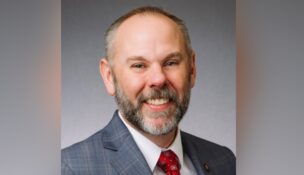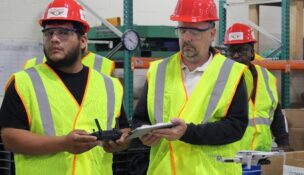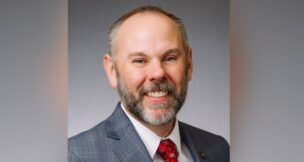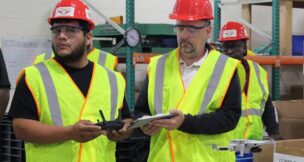Experts’ economic forecast for 2019 remains positive
Contributing Writer //December 5, 2018//
By C. Grant Jackson
South Carolina will see a good, if not a great, economy next year as the United States continues to experience what likely will become in July the longest economic expansion in its history, local experts say.
“We don’t know whether 2019 will be a good year or a great year,” said University of South Carolina research economist Joseph Von Nessen, “but it’s not likely to be a bad year.”
Von Nessen and Doug Woodward, director of research for USC’s Darla Moore School of Business, offered an upbeat appraisal of the state’s economy Tuesday at the school’s 38th Annual Economic Outlook Conference.
While the two don’t see a threat to the continued economic expansion, rising interest rates and U.S. trade policy – especially tariffs – are some cause for concern. Automotive tariffs could be especially worrisome for South Carolina.
Woodward, taking part in his 33rd outlook conference, and Von Nessen presented their annual economic forecast to more than 200 business and community leaders at the USC Alumni Center.
The market fundamentals of jobs, income and consumer spending remain strong, the men said, and they predict that job creation, which they feel is the best measure of economic performance, will grow by 1.8% in the coming year.
The economists predicted a small drop in the state’s unemployment rate for 2019, to 3.1% from the current 3.3%. Von Nessen noted that “there’s not much room left for unemployment to drop, but make no mistake, that’s a good problem to have.”
The small employment gains will be driven by growth in wholesale and retail trade, health care, professional services and tourism, and should counter possible drops in the automotive sector because of tariffs, Von Nessen said.
The implementation of new tariffs, especially in the automotive sector, is a concern for South Carolina’s heavily export-dependent economy. Von Nessen pointed out that for every 10 jobs created or supported directly by the state’s automotive cluster, another 27 jobs are created elsewhere in the state’s economy. So, should the automotive cluster begin to lose jobs as a result of the tariffs, other jobs may be lost as well.
But Woodward thinks the tariffs have been effective so far and believes that it will be in China’s interest to resolve the resulting trade war. He also feels the recently negotiated United States-Mexico-Canada Agreement, which replaces NAFTA, will get through Congress and could be a plus for the state’s automotive industry.
Woodward expressed some concern over the Federal Reserve’s increasing of interest rates, which could spur a slowdown if implemented too quickly, although he does not see that happening.
“The bottom line is that we are experiencing an economic tug-o-war,” Von Nessen said. “Steady job and income gains, coupled with lower gas prices, are fueling higher demand. But some of those gains are offset by rising interest rates and new tariffs.”
n















